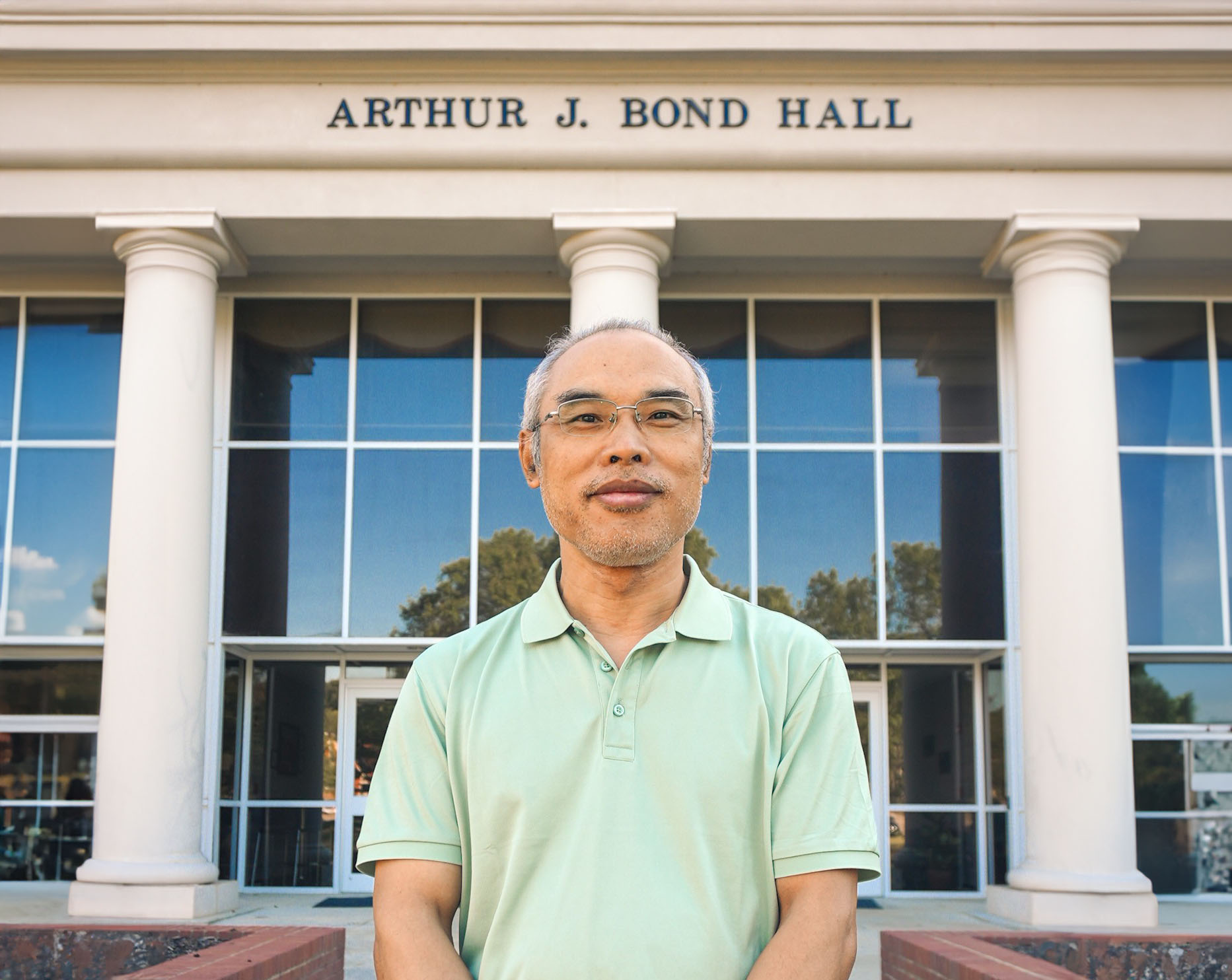Grant Will Fund Advanced Magnetics Research and Create Two New STEM Courses

Liu Secures $322,875 DoD Award to Boost Magnetic Research and STEM Education
Associate Professor of Mathematics, Dr. Congxiao Liu, has been awarded a $322,875 grant from the Department of Defense (DoD) to advance magnetic research and enhance STEM education at Alabama A&M University. The funding will support cutting-edge research and the creation of two new courses, significantly benefiting the University's science, technology, engineering, and mathematics (STEM) students.
The one-year grant will be used to acquire a state-of-the-art Vibrating Sample Magnetometer (VSM)-Torque system, essential for the study of magnetic materials. Liu, who has over 30 years of experience in magnetics research and has published extensively in peer-reviewed journals, emphasized the importance of this award for both research and education.
“This grant is a major milestone for my research and for AAMU,” said Liu. “The VSM-Torque system will allow us to conduct high-quality research in magnetism. Magnetic materials are crucial in modern nanotechnology with wide-ranging applications. The discovery of the giant magnetoresistance effect, for example, revolutionized information technology, and magnetic media remains critical for cloud storage today.”
Liu highlighted this advanced equipment brings AAMU’s research capabilities closer to those of industry labs, a crucial step in keeping the University at the forefront of technological innovation.
“In both academia and industry, staying ahead of research trends is vital,” Liu added. “I focus on improving material performance from a fundamental perspective, and I believe this grant will help elevate AAMU’s research profile while training the next generation of STEM leaders.”
As part of the grant, Liu will introduce two new courses open to all STEM majors at
A&M. The courses will focus on the fundamental principles of magnetism and the emerging
field of
nano-magnetism, providing students with hands-on experience using the new equipment
and opportunities to participate in real-world research projects.
“These courses will immerse students in cutting-edge research,” Liu explained. “One course will cover the basics of magnetism from a materials science perspective, while the other will explore new technologies in nano-magnetism. Students will not only gain theoretical knowledge but also practical experience, helping to prepare them for careers in high-tech fields.”
Liu hopes to make AAMU a leader in magnetics research, particularly among Historically Black Colleges and Universities (HBCUs), where this type of research is rare. He believes this initiative will broaden the scope of the University’s research capabilities and better prepare students for roles in the high-tech workforce, especially within DoD agencies.
“This project is about more than research; it’s about education and empowerment,” Liu said. “Our students will gain experience in both experimental and theoretical research, from preparing and characterizing magnetic samples to designing magnetic devices through modeling. They’ll present their findings at national conferences and gain exposure to industry and government agencies through visits and collaborations.”
The DoD awarded similar grants to 98 university researchers at 71 institutions, totaling $50.1 million under the FY 2024 DoD HBCU, Minority Serving Institutions (MSI) Research and Education Program. AAMU’s share of this funding represents a significant investment in the future of its STEM students and faculty.
Liu’s long-term vision is to establish a magnetics research center at AAMU, with the goal of conducting original, nationally recognized research and further promoting STEM education at the University. The center will be interdisciplinary with expertise from different research areas within the College of Engineering, Technology, and Physical Sciences.
“To achieve this, we’ll seek collaborations with other Universities, national labs, industries, and federal agencies,” said Liu. “This grant is just the beginning. We’re also asking critical questions about STEM education at HBCUs, such as how to best prepare underrepresented students for high-tech careers. This project is key to finding those answers.”